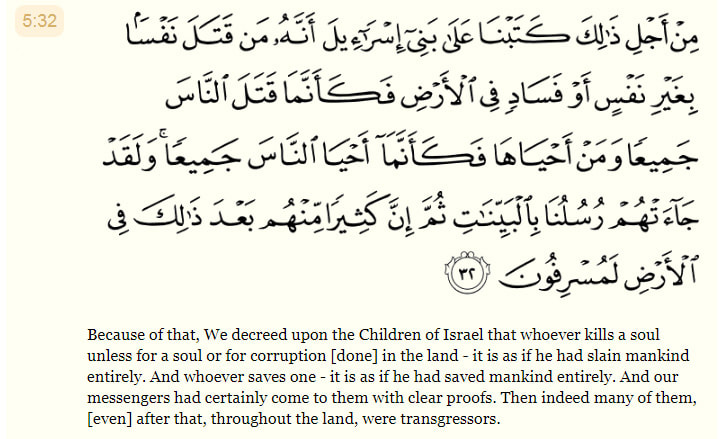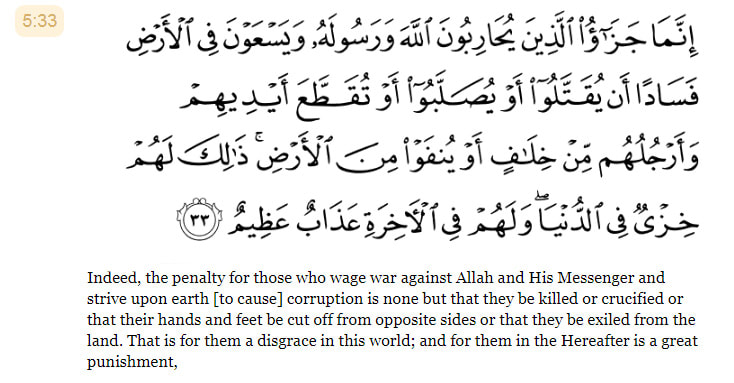|
The Quran in a number of places mentions the following: يَغْفِرُ لِمَنْ يَشَاءُ وَيُعَذِّبُ مَنْ يَشَاءُ He forgives whom He wills and punishes whom He wills To mention a few examples we have the following: and You will notice the order in the Quran with Allah SWT mentioning the forgiveness for his creation prior to mentioning his punishment. In reference to Allah's mercy and wrath we have the following hadeeth collected in Sahih Al-Bukhari and Sahih Muslim عن أبي هريرة، رضي الله عنه ، قال: قال رسول الله ، صلى الله عليه وسلم لما خلق الله الخلق، كتب في كتاب، فهو عنده فوق العرش: إن رحمتي تغلب غضبي". Abu Hurairah (May Allah be pleased with him) reported: The Messenger of Allah (ﷺ) said, "When Allah created the creatures, He wrote in the Book, which is with Him over His Throne: 'Verily, My Mercy prevailed over My Wrath" So therefore the word order in the ayah reflects the prevalence of his mercy over his wrath and punishment However, there is one instance in the Quran where punishment is mentioned prior to His mercy.In Surat Al-Maida we read: يُعَذِّبُ مَنْ يَشَاءُ وَ يَغْفِرُ لِمَنْ يَشَاءُ He punishes whom He wills and forgives whom He wills To understand why this is the case we need to look at the context. If we read the Ayaat prior We can understand why this is the case. We have the story of the Murder of Habeel who was killed by his brother and the revelation given to the Children of Israel regarding taking of another soul and saving a soul. The consequences of taking a soul is mentioned first and this is in line with mentioning punishment first in Ayah 40 Allah SWT then mentions the severe punishment of those who wage war against Allah SWT and His Messenger and sow corruption on the earth. and finally the punishment of the thief is mentioned In this context, punishment being mentioned prior to forgiveness was more appropriately sound . Appropriate sentence positioning is just one of the numerous considerations that one needs to take into account when authoring speech. Take into account that the Quran was speech that was spoken by the Prophet SAW over a 23 year period with no editorial process then one can begin to appreciate the Quran's divine nature and its superiority over all other speech.
0 Comments
 In Arabic, the word Balaagha is derived from the root verb ba-la-gha. Literally, it means: "to reach, attain, arrive at, or to get to a destination”.Technically, Balaagha is the art of reaching the utmost perfection in speech or writing style. It is a discipline that deals with clarity, correctness, and beauty in Arabic writing or oral expression. It is also a process, which enables one to distinguish between beautiful and ugly styles in expression. Balagha is the ability to produce speech that corresponds to and is in agreement with the contextual situation of which the listener is also an integral part of. Failure to observe context and/or the listener means failure to observe the desired aim of Balagha. It should be noted that every situation must have an appropriate speech response. This is stated in Arabic as follows: لكلِّ مَقَامٍ مَقال For every occasion there is an appropriate speech act ( and in in some cases silence is the best response). In Grammar (Nahw), we are concerned with grammatically sound text void of any grammatical errors whereas in Balagha we are, in addition to that, concerned with the contextual appropriateness of statements. The “correctness” of the text based on the rules of classical Arabic correspond roughly to what is referred to as fasahah which is a necessary component of Balagha. So while fasahah can exist with Balagha, the latter cannot exist without the former. To make a text contextually appropriate ( Baleegh) means that the speaker needs to modify and change his text as per context. Hence, it is the context that determines for example, how long the text should be, whether certain elements in the text should be mentioned or omitted, made definite or indefinite, qualified or unqualified, maintain default order or not etc. In addition, imagery, figures of speech (similes, metaphors etc), linguistic ornamentation and beautification such as rhyming and so on, all contribute to the quality and effect of the message on the listener. We have a number of courses found in the Advanced and Quranic studies sections which deal with this vast subject which will give students glimpses of the Quran linguistic miracle. |
Nabeel AlkhalidyHead teacher of the Sibaway Institute. Archives
February 2022
Categories
All
|
THE SIBAWAY INSTITUTE |







 RSS Feed
RSS Feed

